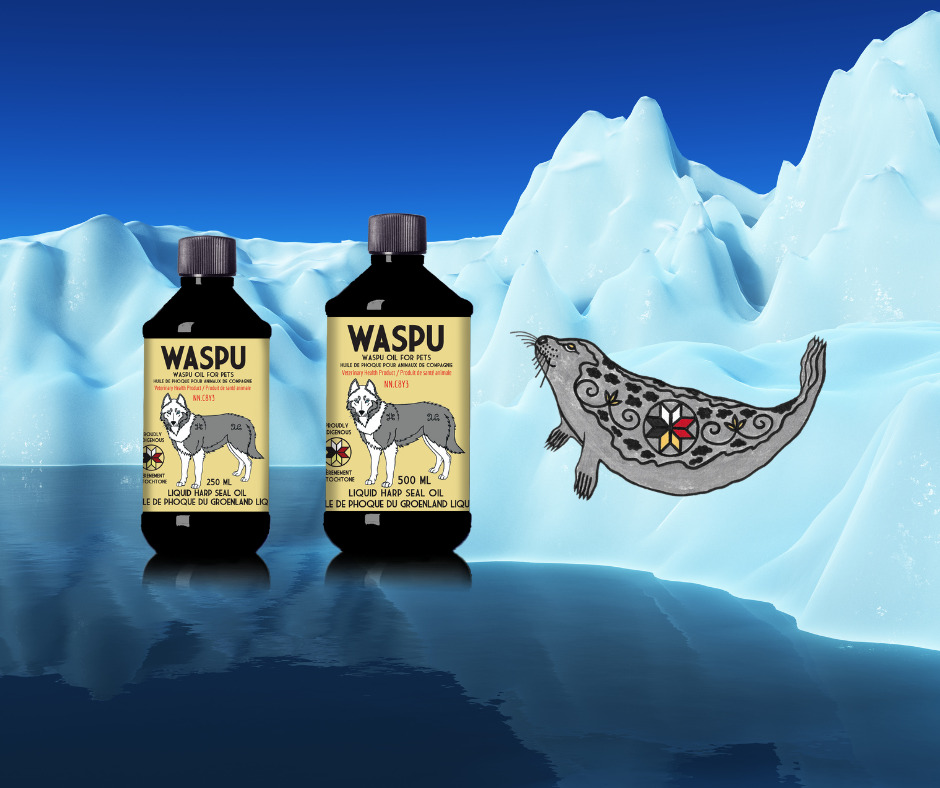Preparing children for academic success is the exclusive focus of parents and educators when school starts. While a child’s overall school year preparation must include a healthy diet, enough sleep, and stimulating learning surroundings, there is a marine treasure that may hold the secret to enhancing a child’s brain power: seal oil. Seal oil, which is high in Omega-3 fatty acids, has recently gained popularity as a potential superfood for children. This article will look into how seal oil may aid your children throughout the school year, with an emphasis on brain development, sleep improvements, and a general reduction in academic stress.
Nurturing Kids’ Brain Health
Ensuring optimal brain function for kids is critical in the pursuit of success in school. The brain is a dynamic organ that develops rapidly throughout the early years, making it critical to give the nutrients required for brain growth and function. Omega-3 fatty acids help to form brain cell membranes and support effective neurotransmission. But that is not all. A study in 2021 shows that Omega-3 supplementation improved learning, memory, cognitive well-being, and blood flow in the brain [1].

Numerous studies correlate Omega-3 fatty acids with enhanced cognitive function, better memory recall, and improved problem-solving skills in children. Seal oil has a high concentration of Omega-3 fatty acids, particularly DPA, which assists in the absorption of all essential Omega-3 fatty acids. [2]. Parents can integrate seal oil into their children’s diets and provide their little learners a cognitive benefit.
Aids Sleep Quality
A kid who has had enough sleep is more focused and alert. We cannot overestimate the value of good sleep for kids’ general health and academic achievement. Children’s brain digests the knowledge they’ve learned throughout the day while sleeping, which is an important time for memory consolidation and cognitive processing.

One study on the connection between Omega-3 fatty acids and sleep found that Omega-3 may enhance several elements of children’s sleep quality [3]. Omega-3 fatty acids may aid to minimize sleep disruptions and promote more restful sleep. High levels of the stress hormone (norepinephrine), which helps to reduce REM (rapid eye movement) during sleep, can be controlled by Omega-3 fatty acids [4]. By including seal oil in a child’s diet, parents may help them to develop good sleep habits, leading to optimal learning and best brain function.
Alleviates Symptoms of ADHD
Many children suffer from attention-deficit/hyperactivity disorder (ADHD), which can affect their ability to focus and participate fully in school activities. While medical remedies are available for the symptoms, complementary treatments like seal oil Omega-3 that address underlying causes can be as beneficial.

One study highlighted that while traditional medications can help with ADHD symptoms, new clinically tested evidence suggests that an Omega-3 supplementation can be a promising complementary therapy, lowering the dose of psychopharmacologic medications required and thus improving ADHD. The study also suggested that Omega-3 supplementation may have a positive impact on attention and behavioral issues associated with ADHD. It advises parents looking for supplemental therapy for their ADHD-affected children to combine Omega-3 with existing treatments [5].
Stabilizing Mood and Mind
The ups and downs of academic pressure, social connections, and personal growth can all have a substantial impact on kids’ emotions. Fortunately, the Omega-3 fatty acids can give more than only cognitive benefits; they can also help with mood stabilization.

Some studies have shown an intriguing link between Omega-3 fatty acids and emotional well-being. A relationship between improvement in anxiety symptoms and Omega-3 polyunsaturated fatty acid treatment was established in a thorough review and meta-analysis of 19 clinical trials including 2240 people from 11 countries. [6]
Incorporating seal oil into your children’s diet can assist them manage academic and personal challenges, as well as provide a natural and comprehensive way to maintain mental stability during the school year.
How to Incorporate Seal Oil into Your Child’s Diet?
If you’re interested in incorporating seal oil into your child’s diet, you must proceed in a safe and educated way. Here are some useful tips for you:
Choose Quality Seal Oil: Make sure that the seal oil you select is of excellent quality and comes from reputable vendors. Try to look for products that have been thoroughly tested for purity and effectiveness. (Note: All the brands that Canadian Seal Products endorses have a solid reputation and a track record of success in rigorous quality testing.) Shop for Canadian Seal Products Seal Oil supplements.
Respect Preferences: Children’s tastes and preferences might differ. If your child is hesitant to try seal oil, be patient and be creative in coming up with methods to make it appealing to them, such as putting liquid seal oil in their smoothies or salad.
Balance and Variety: Although seal oil has many special advantages, it’s still crucial to provide your child with a balanced diet with a variety of foods. To make sure they obtain a variety of crucial nutrients, combine seal oil with other nutrient-rich meals. This approach ensures a well-rounded nutritious intake.
Conclusion
Now that back-to-school time has arrived, it’s time to help our kids reach their maximum potential. Seal oil is a fantastic ally and provides a multitude of advantages that go far beyond the classroom. This sustainable natural resource offers a comprehensive method for developing children’s minds, including improving cognitive performance, supporting mental wellness, and fostering general brain well-being. The time is now – why wait? Join us on this adventure and discover for yourself the transformational power of seal oil.
References
[1] Dighriri IM, Alsubaie AM, Hakami FM, Hamithi DM, Alshekh MM, Khobrani FA, Dalak FE, Hakami AA, Alsueaadi EH, Alsaawi LS, Alshammari SF, Alqahtani AS, Alawi IA, Aljuaid AA, Tawhari MQ. Effects of Omega-3 Polyunsaturated Fatty Acids on Brain Functions: A Systematic Review. Cureus. 2022 Oct 9;14(10):e30091. doi: 10.7759/cureus.30091. PMID: 36381743; PMCID: PMC9641984.
[2] Byelashov, O. A., Sinclair, A. J., & Kaur, G. (2015). Dietary sources, current intakes, and nutritional role of omega-3 docosapentaenoic acid. Lipid technology, 27(4), 79–82. https://doi.org/10.1002/lite.201500013
[3] Dai Y, Liu J. Omega-3 long-chain polyunsaturated fatty acid and sleep: a systematic review and meta-analysis of randomized controlled trials and longitudinal studies. Nutr Rev. 2021 Jul 7;79(8):847-868. doi: 10.1093/nutrit/nuaa103. PMID: 33382879; PMCID: PMC8262633.
[4] Lavialle M, Champeil-Potokar G, Alessandri JM, Balasse L, Guesnet P, Papillon C, Pévet P, Vancassel S, Vivien-Roels B, Denis I. An (n-3) polyunsaturated fatty acid-deficient diet disturbs daily locomotor activity, melatonin rhythm, and striatal dopamine in Syrian hamsters. J Nutr. 2008 Sep;138(9):1719-24. doi: 10.1093/jn/138.9.1719. PMID: 18716175.
[5] Derbyshire E. Do Omega-3/6 Fatty Acids Have a Therapeutic Role in Children and Young People with ADHD? J Lipids. 2017;2017:6285218. doi: 10.1155/2017/6285218. Epub 2017 Aug 30. PMID: 28951787; PMCID: PMC5603098.
[6] Su KP, Tseng PT, Lin PY, Okubo R, Chen TY, Chen YW, Matsuoka YJ. Association of Use of Omega-3 Polyunsaturated Fatty Acids With Changes in Severity of Anxiety Symptoms: A Systematic Review and Meta-analysis. JAMA Netw Open. 2018 Sep 7;1(5):e182327. doi: 10.1001/jamanetworkopen.2018.2327. PMID: 30646157; PMCID: PMC6324500.



